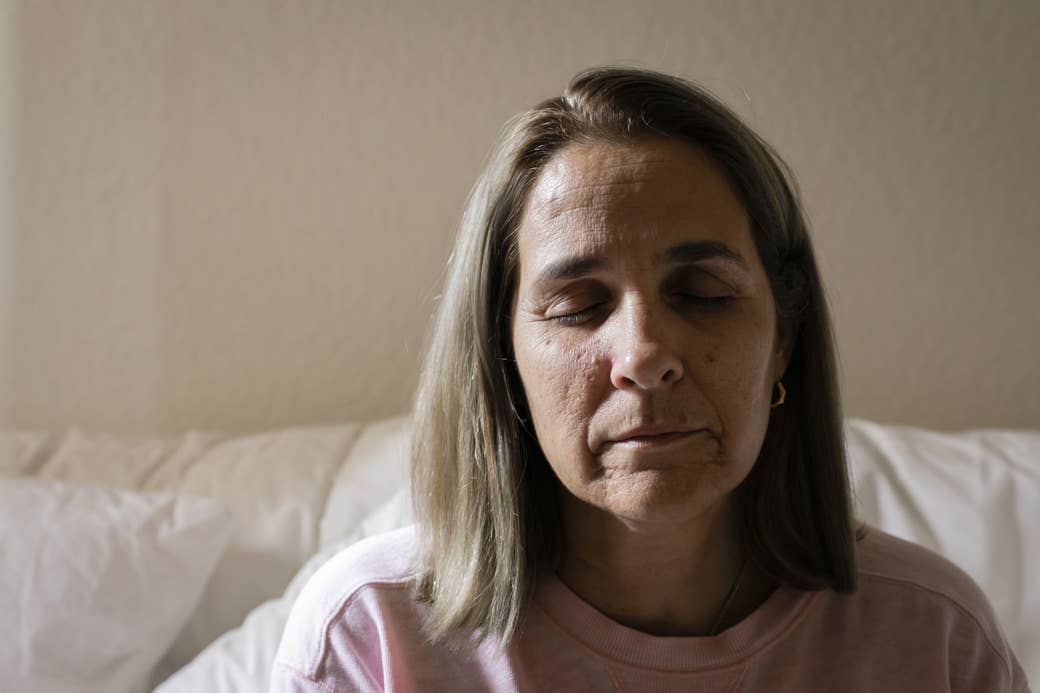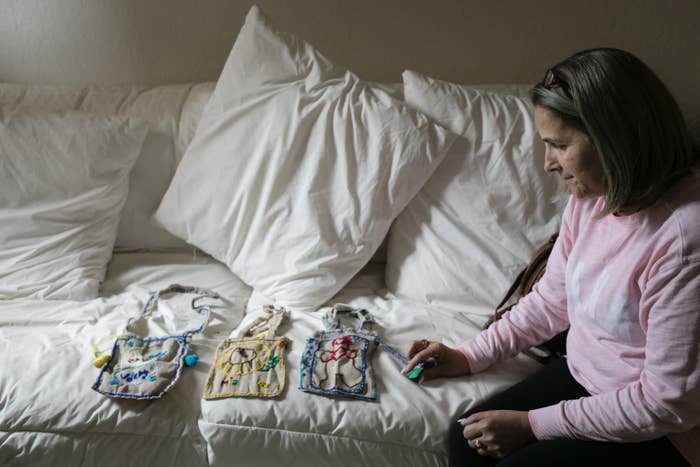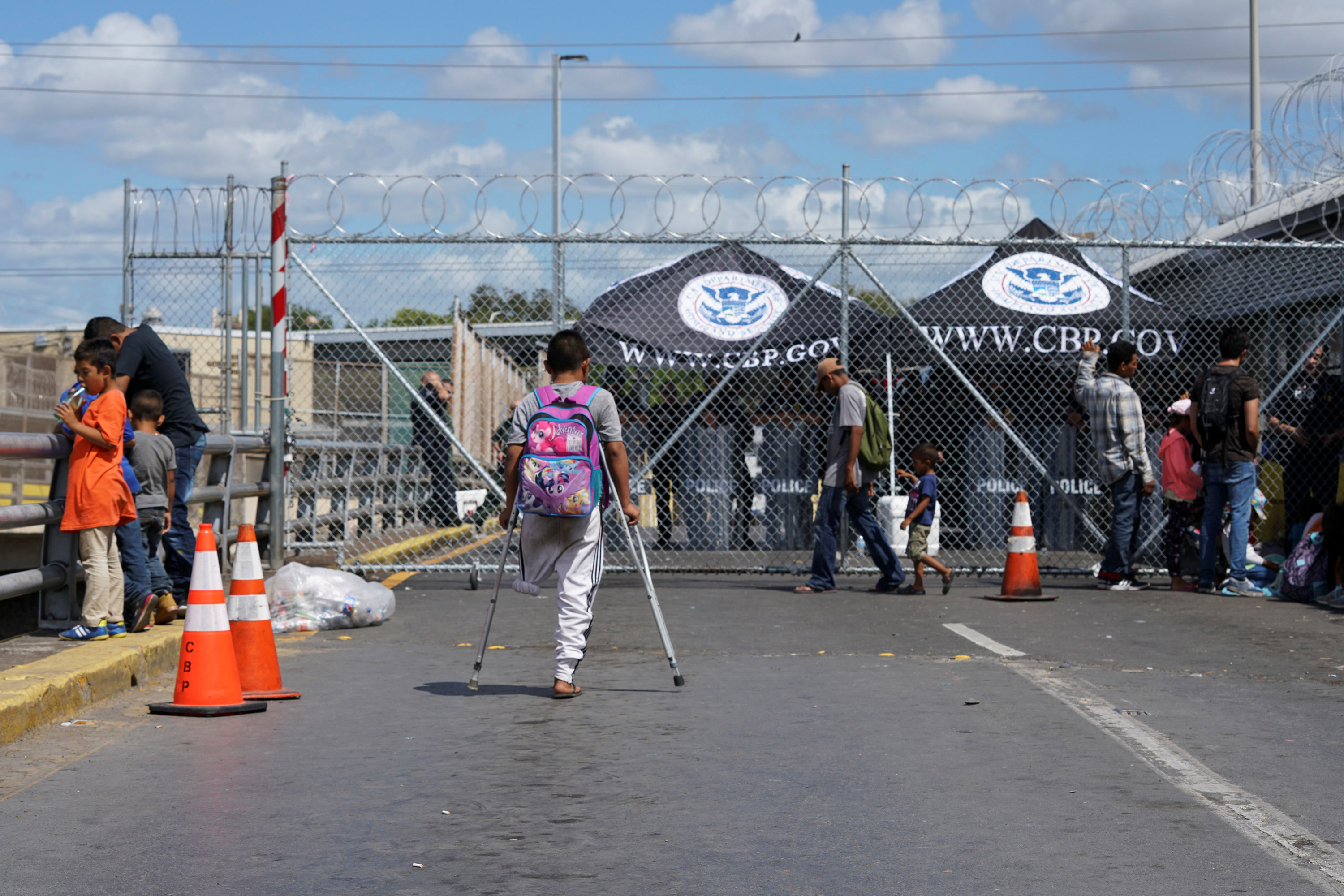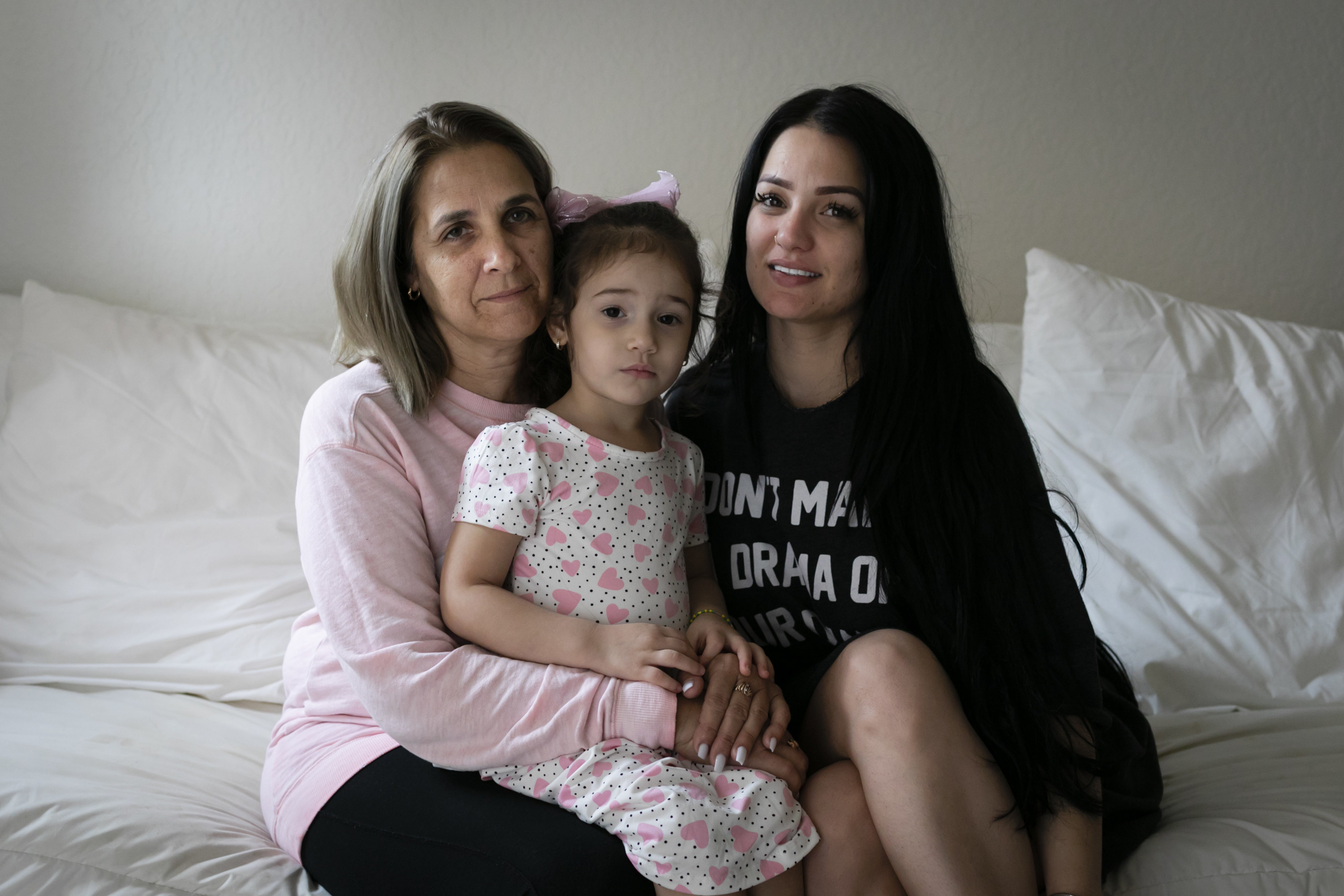
MATAMOROS — Yodalys was already blind in her right eye. And she feared the same parasite, which was now eating away at her left retina, would leave her fully blind before she reunited with her two children again.
The 52-year-old Cuban native was one of more than 55,000 immigrants the Trump administration has forced to wait in Mexico while their immigration cases are completed. In addition to losing her sight, she has severe anxiety and epilepsy. On a recent cold, windy morning she stood in the middle of an international bridge connecting Brownsville, Texas, and the Mexican city of Matamoros, hoping border officers would give her a chance to argue her asylum case in the US and see her children.
"I feel like I'm going to die here," Yodalys said as she gripped the metal railing.
Yodalys waited in Matamoros for roughly six months. She is a case study for the ramifications of Trump’s policy that essentially closed the border to certain immigrants by forcing them to wait in dangerous conditions. And for people who are already suffering from medical problems, that policy could determine whether someone lives the rest of their days with irreparable injury, disease, or disability — like whether they will see out of two eyes, or one.
When the Department of Homeland Security rolled out the Migrant Protection Protocols (MPP) program, officials issued guiding principles that stated immigrants with known physical and mental health issues should not be subjected to it. In practice, the guidance on who shouldn't be put into the program varies, is vague, and Customs and Border Protection officers have a lot of leeway in deciding who is forced to wait in Mexico.
Regardless, attorneys say dozens of immigrants with physical and mental health issues have been sent back to Mexico. Their only recourse is asking if CBP will take them out of the so-called Remain in Mexico program. To make that request, they walk up the bridge, hunched over with backpacks carrying their belongings, and wait — sometimes for hours — in extreme temperatures.
CBP declined to comment on Yodalys’s case due to privacy concerns and said all attempts to get removed from MPP are handled on a case-by-case basis.
In a statement, the CBP said it's not possible to define every potential medical condition or scenario that would exclude someone from MPP. Ultimately that decision is made on a case-by-case basis.
It can be an uphill battle. Attorneys and doctors typically walk immigrants over the bridge with documents to make the case they should be allowed into the US.

For Yodalys, who asked that her last name not be used for this story, it was attorney Charlene D'Cruz who led her up the crowded Gateway International Bridge.
Moments after Yodalys asked two CBP officers stationed halfway up the bridge to let her in, another officer walked up and told her and D'Cruz that her request had been denied. The pair then walked down the bridge, trying to figure out their next step.
D'Cruz, an immigration attorney working in Matamoros, said DHS's guidelines on MPP, which lack details, are not being applied equally. She has helped several immigrants get removed from the Remain in Mexico program, including three who are deaf.
"Why put us through this? Why do they make us spend so many hours on something that's supposed to be done uniformly?" D'Cruz told BuzzFeed News. "Because it's a fight they want, because they're emboldened by this administration. They have been allowed to be cruel."
During a recent tour of DHS tent courts erected in Laredo for judges to hear MPP cases, D'Cruz asked Arianna Gonzalez, CBP assistant port director in Brownsville: If MPP is being applied uniformly, why are vulnerable populations still being sent back to Mexico?
"She told me, 'Oh, no, disabled people do not belong in MPP' and that it shouldn't have happened," D'Cruz said. "I'm working within their draconian MPP exemptions. I'm not asking for a favor, I'm asking them to enforce what they have enacted."
D'Cruz said CBP should treat a person who is going blind and can't get treatment in Matamoros the same as the deaf people she represented. Even if CBP put someone in MPP by mistake, it's difficult to convince officers to undo it, D'Cruz said.
"CBP tells me they equally apply the law — it absolutely is not," D'Cruz said. "I believe the issue is also about CBP digging their heels in."
In October, BuzzFeed News asked CBP why a 13-year-old boy with an amputated leg in Matamoros was put in MPP along with his mother. The child’s injury was the result of a car accident in Mexico on his way to the US border.

"MPP amenability is determined on a case-by-case basis after evaluating the totality of the facts and information available for each case," a CBP official said. "Ordinarily an amputee would not be enrolled in MPP."
Yodalys grew up in Cuba and studied geology in college. She loved it because it required a lot of fieldwork and hours underground. She wrote her thesis on gold extraction.
But it didn't matter what she studied, because she couldn't practice it. Instead, the government gave her work running a general store, which she managed for years. Yodalys said after her children fled to the US to escape political persecution in 2012 and 2013, the Cuban government started to harass her. They accused her of using money from the store to help her children leave and took away her job.
Over the years police would question her about her children and where they were. Right before she left in April 2019, a police officer dressed in civilian clothing robbed her of her purse and phone on the street.
She traveled to Nicaragua, Honduras, and Guatemala before arriving in Mexico. She got sick from toxoplasmosis — a disease that results from being infected with the common Toxoplasma gondii parasite — after she was left with a weakened immune system from undergoing chemotherapy and radiation for cervical cancer.
Maura Sammon, medical director for Global Response Management (GRM), which provides medical care to immigrants in Matamoros at an encampment along the Rio Grande, said they tried treating Yodalys’s toxoplasmosis, but she did not respond to conventional treatment, which includes antiparasitic medication.
GRM doctors tried to get Yodalys specialized treatment in Matamoros, but they were told it wasn't available.
"There was no way for her to get that treatment in Matamoros," Sammon told BuzzFeed News.
In a previous attempt to get Yodalys removed from MPP, CBP officials told her they would postpone her asylum court hearing so she could try to get specialized care in Monterrey or Mexico City.
“How is she supposed to go to Mexico City and then come back? She’s blind,” D’Cruz said.
Yodalys relied on two roommates, also Cuban asylum-seekers she shares an apartment with, to get around the city. In late January, she was at the international bridge, unsuccessfully asking CBP to take her out of MPP. Because it was late, she said her roommates were working and couldn't pick her up, so she had to ask a child to help her cross the street. She was abandoned in the streets of Matamoros twice by cab drivers, she said, when she started to feel sick and they didn’t want to deal with her.

While trying to get to the border last year, Yodalys was detained by Mexico’s immigration enforcement agency in Mexico City for 50 days. During that time, she stitched three bags for her grandchildren despite her deteriorating eyesight.
She hastily packed the bags into her small backpack when CBP called D'Cruz and told her to bring Yodalys back up to the bridge. They rushed over, Yodalys shaking from the stress and worry that she'd be mistreated in CBP custody.
"What if they try to get even with me for making a commotion?"
Once inside the office, she started having severe chest pains and was taken to an emergency room in the US. D'Cruz hoped that meant Yodalys could stay in the US, but at about 6 p.m. Yodalys was sent back to Matamoros. Defeated, she made her way back to her apartment before it got too dark.
Shortly after she arrived home, D'Cruz called her. CBP wanted her to come to the bridge yet again.
But this time would be different. Yodalys was given a stack of documents and allowed into the US to make her case for asylum.
The next day she was reunited with her son and daughter in Florida. She has since started treatment for the toxoplasmosis, and a doctor told her surgery could help restore her sight in her right eye.
"It took a lot to get here, but I made it with the help of Charlene and the doctors," Yodalys told BuzzFeed News. "But at the same time, it's sad because not everyone who should be taken out of MPP is as lucky as me." ●

